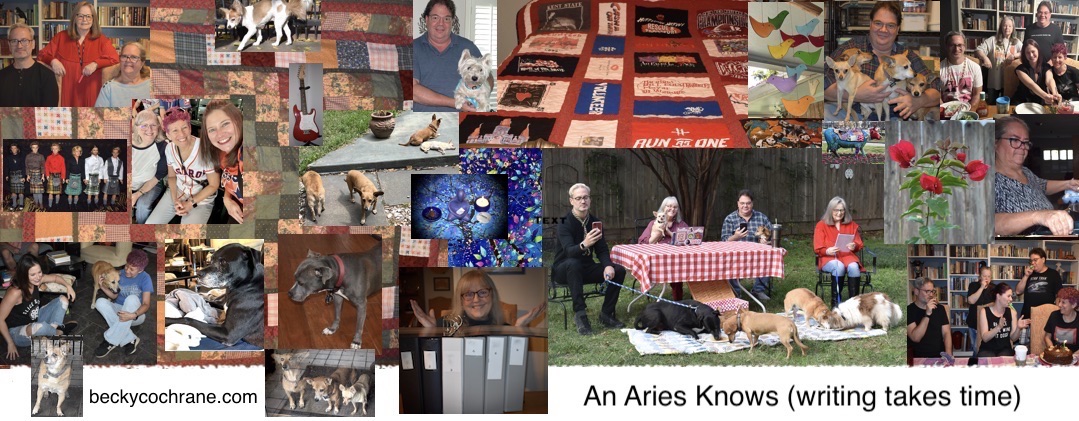
Though I’ve shared this photo on my blog before, and it’s probably better saved for November 22, the fiftieth anniversary of John F. Kennedy’s assassination, I’ve been thinking of that day all morning while trying to compose this entry. In the larger scale of time, it won’t be that long before the last among us (who’ve turned thirty-five more than a few times) will be around to say, “I remember exactly where I was when I heard the news…”
I think there are far fewer good national and global events that remain locked in our memories the way the bad ones do, although certainly I often heard older generations speak of the moment when they heard World War II was over. I think sometimes it’s not so much the impact of bad news that makes us recall it so vividly, but that there’s been no advance preparation for it. We’re going about our routines and suddenly, with no warning, we hear something shocking.
On a more personal level, when someone has to tell us something awful, they generally preface the news with words that prepare us. “I’m so sorry to tell you…” or “Something really terrible has happened…” or “I need you to come home/meet us at the hospital/sit down…” But there have been a few occasions in my own life when someone has delivered terrible news without preamble, either because that person thought I already knew, or was speaking out of a kind of shock, or didn’t know that it was going to affect me as badly as it did.
Such is the case in the beginning of Jeffrey Ricker’s short story “Tea.” The narrator, a young man just about to begin graduate school, is given devastating news by his mother, who has no idea that her son is in an intimate relationship with the person she’s telling him about. Those first few moments after he hears the news precisely encapsulate how a person goes through the motions in order to hide a breaking heart, perhaps even from himself.
She kept talking, but for some reason I couldn’t hear it. Maybe there was a truck driving down the street. The window over the sink was open, and we could hear whole conversations when people walked past on the sidewalk below. That day, a Sunday, the street was empty; still, it sounded like the ocean filled my ears.
When I looked back, she was staring at me. She’d stopped crying, but her face was still wet.
“God, that’s awful,” I said. “You want me to make you a cup of tea?”
She looked down at the table and dabbed her nose. “Would you please?”
Tea was the answer to everything. Once a coffee drinker, when she moved to England, she left behind the bean in favor of the leaf. Now she drank a lot of tea and had a different blend for every need: English breakfast for fortification; Earl Grey or maybe a white tea when something delicate was called for; chamomile or green for illness; and iced orange pekoe with lemon to ward off the heat of summer.
I wasn’t sure what the prescription was for tears.
I held the kettle under the faucet and stared out the window. It was starting to drizzle, drops spattering the warped panes. I shut the window; the rain made the glass appear to undulate, turning the world outside into a funhouse illusion.
I set the kettle on the counter and plugged it in. While it clicked and popped, I took down the ceramic teapot and opened the cupboard. The names on the tea tins read like stations on an East Asian railway I would never travel—Darjeeling, lapsang souchong, Ceylon, Assam, Yunnan, oolong. I looked again. There was no Earl Grey.
Shutting the cabinet, I turned to Mom. “Would you like to go to the pub and get a drink instead?”
She touched the napkin to her eyes one more time, then folded it and set it on the table in front of her.
“Let me get my purse.”
There’s so much more to this story, and you can read it in Foolish Hearts: New Gay Fiction, on sale January 14, 2014.
Excerpt reprinted with permission from Cleis Press. All rights reserved.

The names on the tea tins read like stations on an East Asian railway I would never travel—Darjeeling, lapsang souchong, Ceylon, Assam, Yunnan, oolong. I love that sentence, thanks for giving us these peeks – i can’t wait to read!
Marika: There’s nothing quite like having a cupboard full of different kinds of tea.
Becky, thanks (to you as well as Tim) for giving this story a home!
I only have peppermint and black tea … but yours sound so exotic
You’re welcome. I hope we get a chance to do it again!
Oh my, two full months to go! To calm myself I ran to the cupboard to get some tea. Unfortunately, the sampler packages read like a catalog of trade names … Bentleys, Bigalow, Twinnings, Liptons, Stash and The Republic of Tea. And the flavors left me totally confused … thé vert à la grenade/framboise, cirtouille épicée, chocolat/noisette and eggnogg’n! I didn’t even know the French drank tea. So I settled for a local beverage and popped the cap from a bottle of Fitz’s.
I want to travel to the Republic of Coffee. Especially if it’s only a few blocks away.
What a great “voice” our Mr. R has.
I agree.
When my brother died I would soften the blow for people with a preamble when I told them – even those who didn’t know him! I knew people would feel awkward and not know what to say – and be afraid I might burst into tears…
I love a drop of Lapsang – bonfire tea!
I learned when my father died how often people struggle for the right thing to say or with how to react to that kind of news. It never seemed as hard on me to say it as it was on them to hear it.
So among my favorite stories: I ran into one of my professors in our department office. After the niceties of the hi, how are you kind of chat, he suddenly remembered and said, “Hey, isn’t your father sick?”
“Actually, he died,” I said.
“Oh, that’s much worse!” he said. I cracked up, he cracked up, and then he said, “I’m sorry.”
I loved that he made me laugh first.
I think laughter is important, even when someone has died. Me, my brother and cousins nearly wet ourselves laughing in the funeral car following our nan’s coffin to the cemetery. It wasn’t disrespectful, though. I think she’d have been laughing with us.
I’ll have to ask Mum and Dad where they were when they heard that JFK had died. I know Mum remembers it being announced over the tannoy at work when the King died – and that was in 1952.
I definitely was NOT around when the King died. But I certainly remember when the Queen Mother and Princess Margaret died–though of the royal family, the only memory of where I was/what I was doing is from the night Diana died.